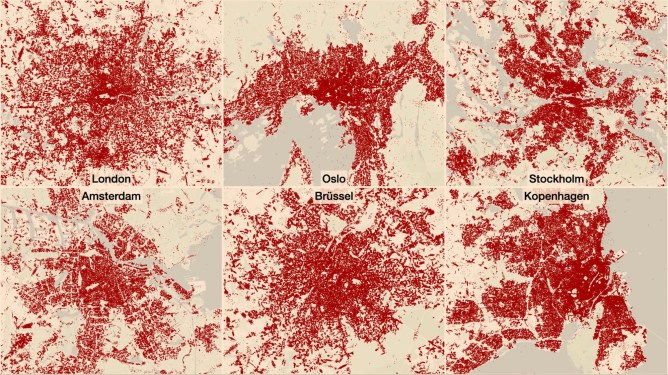December 30, 2024 · 12:24 PM PST
Image Credits: Michael Kreil, Flüpke / Chaos Computer Club(opens in a new window)
Volkswagen Group’s Troubled Automotive Software Unit Left Terabytes of Customer Data Exposed to the Internet
According to reports by Der Spiegel (in German), citing security researchers who learned about the data spill from an unnamed whistleblower, Volkswagen Group’s automotive software unit Cariad left terabytes of customer data on around 800,000 electric Audi, Seat, Skoda, and Volkswagen vehicles exposed to the internet for months. The exposed data contained precise location coordinates on more than half of the listed vehicles, approximately 460,000 cars.
The Data Exposure: A Security Concern
The security researchers, who gave a talk at the Chaos Computer Club in Hamburg, Germany this week, stated that some of the location data was accurate to just a few centimeters. The exposed data showed most of the vehicles found across Germany, Norway, Sweden, the United Kingdom (in descending order), among others.
Cariad’s Response and Actions Taken
Cariad has since fixed the bug that led to the exposure and claimed that it has no evidence to suggest anyone other than the security researchers had access to the exposed data. Despite this assertion, the incident raises serious concerns about Cariad’s security measures and ability to protect sensitive customer information.
Cariad’s Troubled History
In recent years, Cariad has struggled with delays to major software launches and a restructuring that has eliminated hundreds of jobs. This latest incident is just another example of the challenges facing the company as it attempts to navigate the complex world of automotive software development.
The Importance of Cybersecurity in the Automotive Industry
As the automotive industry continues to shift towards electric vehicles (EVs), cybersecurity becomes an increasingly pressing concern. With the rise of connected and autonomous vehicles, the potential risks associated with data exposure increase exponentially. It is essential that companies like Cariad prioritize cybersecurity measures to prevent such incidents from occurring.
The Implications for Customers
For customers affected by this incident, it raises questions about the security of their personal data. How did Cariad fail to detect and address this vulnerability? What steps are being taken to ensure customer trust is restored?
Industry Response and Regulation
In response to this incident, industry leaders must take a closer look at their own cybersecurity measures and consider implementing more robust protocols to prevent similar incidents from occurring. Governments also have a role to play in regulating the automotive industry to ensure that companies prioritize customer data protection.
What’s Next?
As we move forward, it is essential that companies prioritize transparency and accountability in the face of such incidents. Stakeholders must demand answers about how this happened and what measures are being taken to prevent future breaches. The industry cannot afford to wait; action must be taken now to ensure customer trust is restored.
A Call to Action
In light of this incident, it is crucial that companies take proactive steps to address cybersecurity concerns. This includes implementing robust security protocols, conducting regular audits and vulnerability assessments, and prioritizing employee training on cybersecurity best practices.
Conclusion
The Volkswagen leak is a stark reminder of the importance of cybersecurity in the automotive industry. As we continue to push forward with innovation and development, it is crucial that companies prioritize customer data protection. The consequences of neglecting this responsibility can be severe, as seen in this latest incident. Only through proactive measures and a commitment to transparency can we ensure that customers’ trust is restored.
Related News
- Sony-Honda’s Afeela EV will start at $89,900
- [Washington sues T-Mobile over 2021 data breach that spilled 79 million customer records](https://techcrunch.com/2024/12/30/washington-sues-t-mobile-over-2021-data-breach-that-spilled-79-million-customer-



